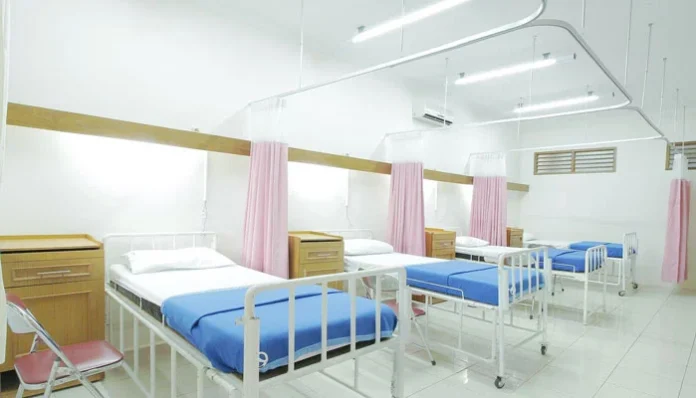- Advertisement -
KARACHI, Apr 11 (APP):In a significant step towards improving healthcare infrastructure across Sindh, Chief Secretary Sindh Asif Hyder Shah chaired a high-level meeting focused on the upgradation of emergency departments in secondary care hospitals throughout Karachi
The meeting, held at the Sindh Secretariat, was attended by the Secretary Health Dr Rehan Baloach, Secretary Works and Services Muhamamd Ali Khoso, Secretary Implementation and Coordination (I&C) Abid Saleem and medical superintendents of several key hospitals operating under the Government of Sindh.
During the meeting, the Chief Secretary highlighted the pressing need to strengthen the emergency response capabilities of government-run secondary care hospitals, especially in light of the increasing patient burden witnessed across the city.
He stressed that the upgradation of emergency wards was no longer optional but an urgent necessity, as the current facilities were under immense pressure and needed comprehensive reform to meet the growing healthcare demands of Karachi’s population.
He stated that the primary goal of this initiative is to enhance the accessibility, efficiency, and overall quality of emergency healthcare services.
These improvements, he noted, would ensure timely, organized, and life-saving care for all citizens, particularly for those relying on government facilities for urgent medical treatment.
Chief Secretary Asif Hyder Shah also emphasized that upgrading emergency departments at the secondary care level would play a pivotal role in easing the burden on tertiary care hospitals. “At present, many secondary care hospitals are referring even basic emergency cases to major tertiary hospitals due to lack of infrastructure and resources.
This results in overcrowding and delays in critical care. By strengthening emergency services at the secondary level, we can manage a significant portion of emergency cases locally and effectively reduce the load on tertiary care facilities,” he said.
During the meeting the Secretary Health briefed the meeting about the current services at Sindh Government Hospital Ibrahim Hyderi, Korangi No. 5, 2A Corridor Landhi, Saudabad Malir, Murad Memon, New Karachi, and Liaquatabad. He said these hospitals are serving many patients daily but need better emergency services.
He informed the forum that while these hospitals are providing essential primary care services to a large number of patients on a daily basis, their emergency departments remain under-resourced and lack the necessary capacity to handle critical cases effectively. He recommended providing more staff, equipment, and budget to improve their emergency departments.
Acknowledging the resource limitations faced by many hospitals, the Chief Secretary assured the attendees that the Sindh Government would extend complete support in terms of both human and financial resources. He further emphasized that necessary medical equipment and infrastructure support would also be provided to ensure that the upgraded emergency departments are modern, well-equipped, and capable of delivering high-quality care under pressure.
The medical superintendents of various hospitals welcomed this timely initiative and shared their observations and suggestions based on the unique challenges and requirements of their respective facilities. They also presented proposals and design plans that focused on reconfiguring the physical layouts of existing emergency departments to improve patient flow and operational efficiency.
Hospitals identified for immediate attention under this initiative include Sindh Government Hospital Ibrahim Hyderi, Sindh Government Hospital Korangi No. 5, Sindh Government Hospital 2A Corridor Landhi, Sindh Government Hospital Saudabad Malir, Sindh Government Hospital Murad Memon, Sindh Government Hospital New Karachi, and Sindh Government Hospital Liaquatabad. These hospitals were selected due to their strategic importance and the high volume of patients they serve on a daily basis.
The Chief Secretary directed all hospital administrators to submit comprehensive and actionable plans for the proposed upgrades. These plans are to include detailed scopes of work, timelines, cost estimates, and resource requirements.
He assured the participants that these proposals would be reviewed promptly, and approvals would be granted without delay to facilitate swift implementation. Concluding the meeting, the Chief Secretary reiterated the Sindh Government’s firm commitment to overhauling healthcare delivery systems and ensuring that every citizen, regardless of socioeconomic status, has access to safe, reliable, and dignified emergency care.
He praised the dedication of the hospital administrators and departments involved and called for close coordination among all relevant stakeholders to ensure the successful execution of this transformative healthcare initiative.

